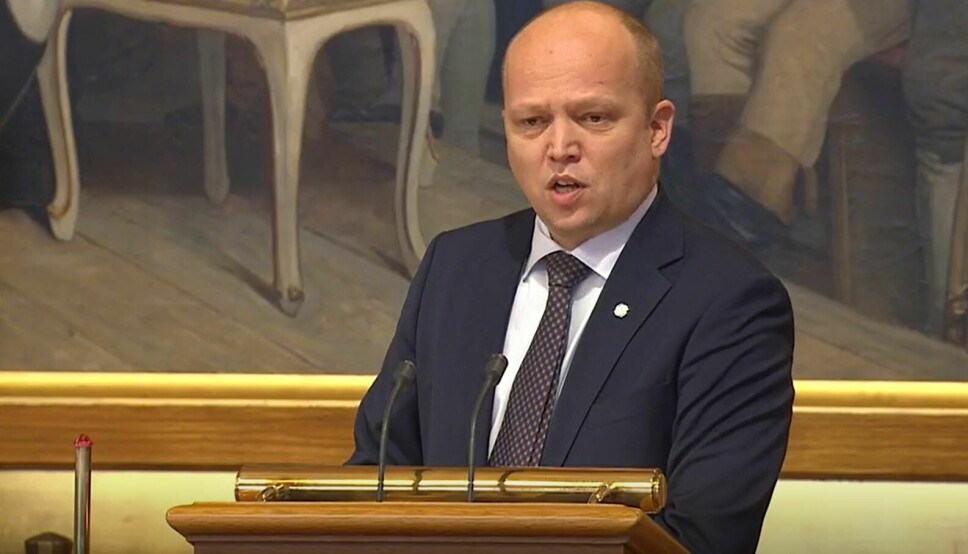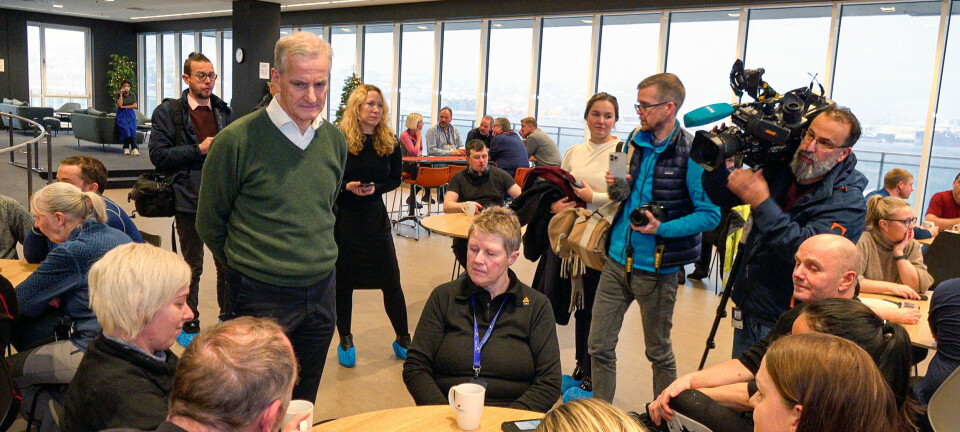
Norway finance minister makes changes to resource tax plan
Vedum concedes ground after proposal is blamed for processing job losses
Norway’s finance minister Trygve Slagsvold Vedum today gave a concrete commitment that a new 40% “resource” tax to be slapped on salmonid farmers from January 1 will be calculated on what they earn for their fish, rather than an average of spot prices, reports Fish Farming Expert's Norwegian sister site, Kyst.no.
In a letter to Norway’s parliament, the Storting, Vedum said: “It is accepted that the tax is calculated based on internal prices for 2023. This means that the tax base will not be calculated from the prices obtained on the salmon exchange.”
He added: “For 2023, the internal price of the companies will be the starting point, but you must be able to prove to a standard price council that these are correct revenues.”
Artificial prices
The government has expressed scepticism about such an arrangement in the past, as ministers believed that this could lead to artificially low transfer prices between farming and secondary processing operations owned by the same company.
The tax is to be charged on the value added to fish during their time in net pens in the fjords, the natural “resource” which the government says farmers are using for free. Artificially low transfer prices would reduce the amount of value added, and thus of resource tax owed.
To avoid this, Vedum wants to establish a standard price council (Normprisrådet), which can check whether the prices the companies state are real and correct. A standard price council was previously mentioned as one of several ways to solve the challenge related to resource tax calculation, but Vedum has now confirmed that this is the way the government wants to go forward.
“The Normprisrådet will get a lot of data and a broad overview and will quickly see if the internal price is natural. They will have the authority to report if you have not provided the correct basis,” said Vedum.
Processing lay-offs
The finance minister’s announcement comes the day after Prime Minister Jonas Gahr Støre came face to face with salmon processing workers who face being laid off because of the resource tax proposal.
Støre was visiting salmon farmer SinkabergHansen’s processing plant on the island of Marøya, near Rørvik in Trøndelag county, for talks with management and shop stewards.
The government’s September announcement that it planned to impose the resource tax from 2023 is said by the salmon industry to have destroyed the fixed-price market, leaving secondary processors with no work, and forcing them to issue lay-off notices.
Farmers say the original proposal to calculate their tax liabilities based on an average spot price didn’t factor in the lower prices achieved for fixed-price contracts, or downgraded fish. This meant farmers could be paying tax on money they never made. Consequently, they have shunned fixed-price contracts in favour of the spot market.
























































